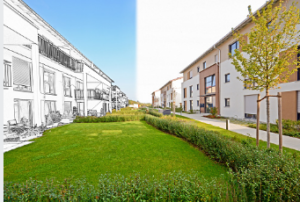Leyton-Property commercial property development Adelaide involves building structures that generate income for investors and businesses. These projects can take many forms, including office buildings, industrial spaces, and multifamily rental properties. They require more space than residential developments and typically involve zoning laws.
Often, commercial property developers must conduct market research before starting the process. It is an essential step in the commercial property development process in Adelaide, as it can help them determine whether a project will be successful.
Leyton Property
 Commercial property developers must understand the market to design buildings that attract tenants and generate a return on investment. This process requires a team of professionals, including architects, landscape architects, civil engineers, and environmental consultants. It also requires market analysts and attorneys to manage agreements and government approvals.
Commercial property developers must understand the market to design buildings that attract tenants and generate a return on investment. This process requires a team of professionals, including architects, landscape architects, civil engineers, and environmental consultants. It also requires market analysts and attorneys to manage agreements and government approvals.
A recent report by property research company Hotspotting highlighted Adelaide’s diversified economy and stable commercial property market, which has remained resilient despite a shaky global economy. The city’s low vacancy rates and attractive rental yields have attracted investors from both local and interstate markets.
Adaptive reuse
Adaptive reuse is a great way to revitalise commercial properties. It can help save on costs by converting old buildings into offices or retail spaces and can also be a great way to boost the economy. It can also be an environmentally friendly method of property development, as it reduces the amount of waste generated by construction projects. Adaptive reuse can also reduce the need for new infrastructure, which is often expensive.
Using an adaptive reuse strategy can help businesses create a space that suits their needs, allowing developers to preserve the historical features of the building. For example, a former car factory can be transformed into a creative office, while a warehouse can become an entertainment venue. Adaptive reuse can also increase the value of a property. In addition, it can reduce operating expenses by lowering energy use. Moreover, it can save on the cost of land by avoiding the need for a new parking lot or other amenities.
Site selection
Site selection is a crucial process that commercial property developers must complete before developing their buildings. It examines various factors, including foot traffic patterns, residential occupancy rates and economic trends. It also entails evaluating the property’s location and zoning laws. This research helps commercial property developers determine if the project will be profitable and what type of structure they should build.
Commercial property developers construct office spaces, industrial areas, and multifamily rental apartments to earn rental income and capital gains. They also play a vital role in meeting the demand for modern, flexible workspaces. These professionals are also responsible for incorporating sustainable features into their buildings.
A site selection expert can help with the development process by analysing local demographics and market conditions. They can find the best locations and negotiate the most competitive terms for investors. They can also assist with obtaining the necessary permits and negotiating government approvals. The site selection process can be lengthy, so it is essential to choose an experienced team.
A skilled team of professionals can make or break a commercial property development project. A good team will include architects, landscape architects, civil engineers, and planners. They will also need experts in construction management and project planning. The unit can also include lawyers who manage agreements and deal negotiations, as well as surveyors who describe legal property.
Planning
The planning stage is one of the most essential parts of a commercial property development Adelaide project. It involves researching the local economy and market trends and identifying potential investment opportunities. The process also includes finding the right location for the project. To do this, a developer must consider the size of the land, zoning restrictions and traffic flow. In addition, they must ensure that the local economy can support the type of business they’re building.
Once the site has been selected, the construction process can begin. It includes securing building permits and electrical, plumbing and fire safety permits. It may also involve obtaining a use permit from the local zoning variance authority. Additionally, it’s crucial to keep the Council informed throughout the construction phase. Depending on the project, you may need an erosion control permit if earth disturbances are significant.